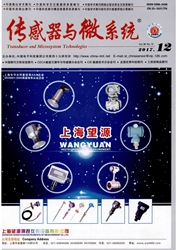

 中文摘要:
中文摘要:
认知无线电技术可以择机地使用注册信道,从而提高频谱的利用率。但是这种提高只是局限于时域上的。将具有空间分隔特性的智能天线引入次无线电系统,设计了一种在空间上可以复用的频谱访问协议。该协议使次用户(SU)和主用户(PU)可以同时共存,优化了频谱和空间资源的分配,进一步提高了频谱的使用效率。此外,还对SU的传输成功概率和网络吞吐量进行了理论分析和仿真。结果表明:与使用传统全向天线的认知无线电相比,基于智能天线的认知无线电系统能获得更多的传输机会,吞吐量显著提升。
 英文摘要:
英文摘要:
Smart antenna with the characteristics of spatial separation is introduced into cognitive radio which greatly improve the spectrum efficiency in space domain.In order to further improve the spectrum utilization efficiency,a spectrum access protocol which can be used in space and enables cognitive users to coexist with primary user and optimizes the allocation of spectrum and spatial resource and the using efficiency is improved.In addition,the successful communication probability and network throughput of the cognitive users are simulated and analyzed theoretically.The results show that compared with the Omni antenna,the cognitive radio systems based on smart antenna can get more opportunities for transmission,and throughput is significantly improved.
 同期刊论文项目
同期刊论文项目
 同项目期刊论文
同项目期刊论文
 Multiobjective optimization of HEV fuel economy and emissions using the self-adaptive differential e
Multiobjective optimization of HEV fuel economy and emissions using the self-adaptive differential e Rough neural network modeling based on fuzzy rough model and its application to texture classificati
Rough neural network modeling based on fuzzy rough model and its application to texture classificati A Selection Model for Optimal Fuzzy Clustering Algorithm and Number of Clusters Based on Competitive
A Selection Model for Optimal Fuzzy Clustering Algorithm and Number of Clusters Based on Competitive A multiscale bi-Gaussian filter for adjacent curvilinear structures detection with application to va
A multiscale bi-Gaussian filter for adjacent curvilinear structures detection with application to va Multi-Objective self-adaptive differential evolution with elitist archive and crowding entropy-based
Multi-Objective self-adaptive differential evolution with elitist archive and crowding entropy-based On Global Robust Stability of a Class of Delayed Neural Networks with Discontinuous Activation Funct
On Global Robust Stability of a Class of Delayed Neural Networks with Discontinuous Activation Funct Neural networks-based adaptive robust control of crawler-type mobile manipulators using sliding mode
Neural networks-based adaptive robust control of crawler-type mobile manipulators using sliding mode Long-term Prediction of Time Series with Iterative Extended Kalman Filter Trained Single Multiplicat
Long-term Prediction of Time Series with Iterative Extended Kalman Filter Trained Single Multiplicat Intelligent injection liquid particle inspection machine based on two-dimensional Tsallis Entropy wi
Intelligent injection liquid particle inspection machine based on two-dimensional Tsallis Entropy wi Predicting reliability and failures of engine systems by single multiplicative neuron model with ite
Predicting reliability and failures of engine systems by single multiplicative neuron model with ite 期刊信息
期刊信息
